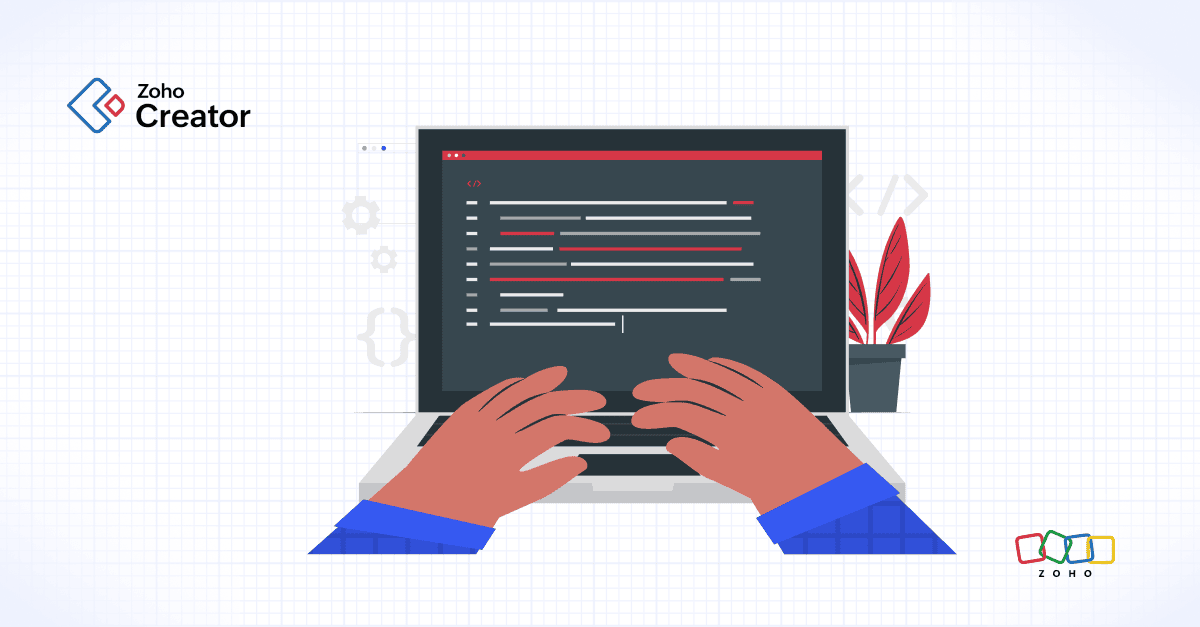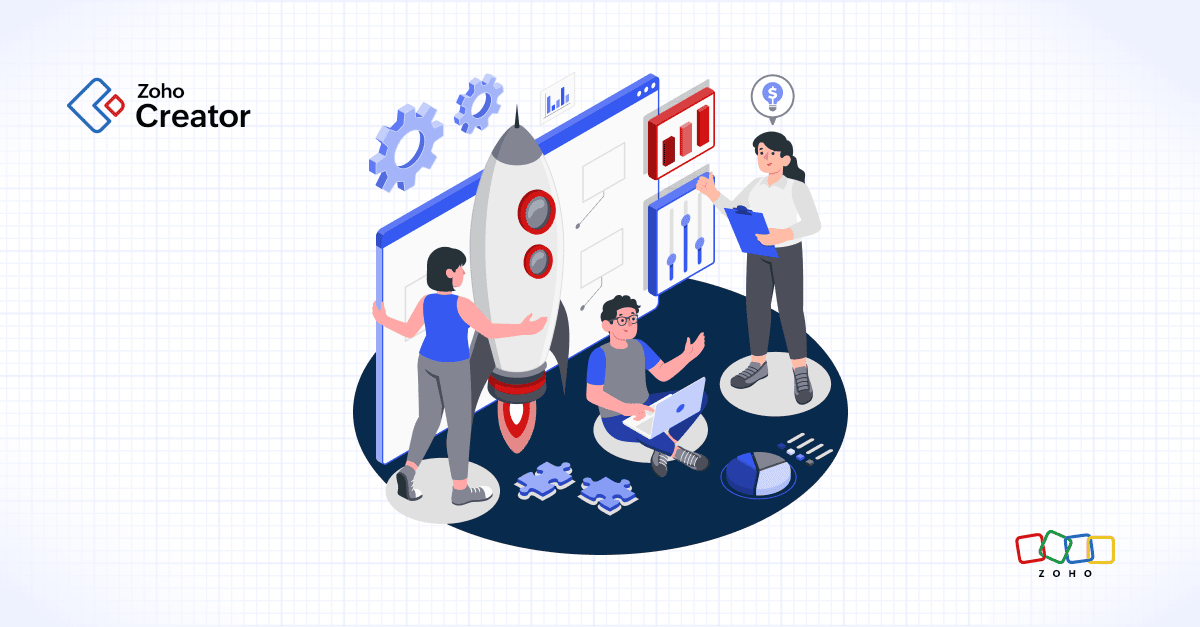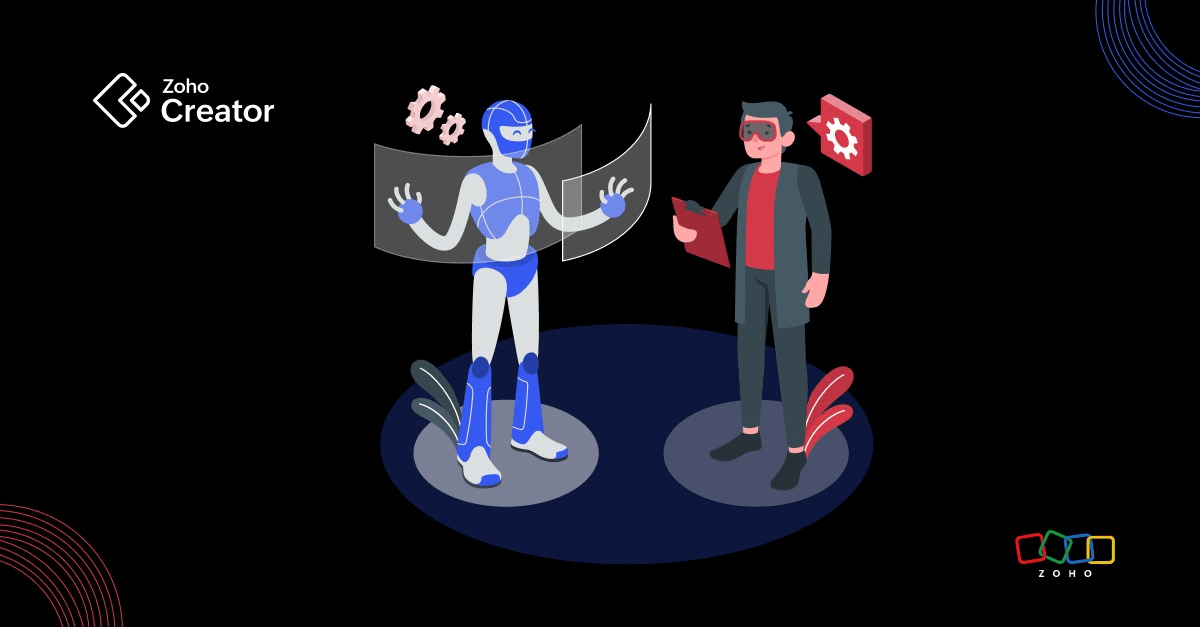- HOME
- Know Your Tech
- Driving growth with data: Real-world BI examples
Driving growth with data: Real-world BI examples
- Last Updated : October 10, 2023
- 1.4K Views
- 6 Min Read
Organizations today have to deal with massive amounts of real-time data—and analyzing it is crucial for making data-driven decisions and discovering new opportunities to elevate business performance. However, the only way to harness the sheer volume of unorganized data and obtain actionable insights is by utilizing business intelligence (BI) tools for data analysis.
This is where BI comes into play. According to Forrester, "Companies need to speed up their business intelligence capabilities in order to succeed in the age of the customer and outpace their competition with more timely and finely tuned decisions".
Leveraging BI software helps you analyze data and transform it into actionable insights for your business operations, offering the capability to monitor and predict company performance.
A business intelligence solution also acts as data visualization software that helps in understanding information by creating competitive dashboards. With a business intelligence tool you can work better, satisfy customers, and stay ahead of the competition.
This blog will walk you through some practical examples of business intelligence that showcase how businesses use insights to make smarter decisions and achieve impressive results.
Why do you need business intelligence software?
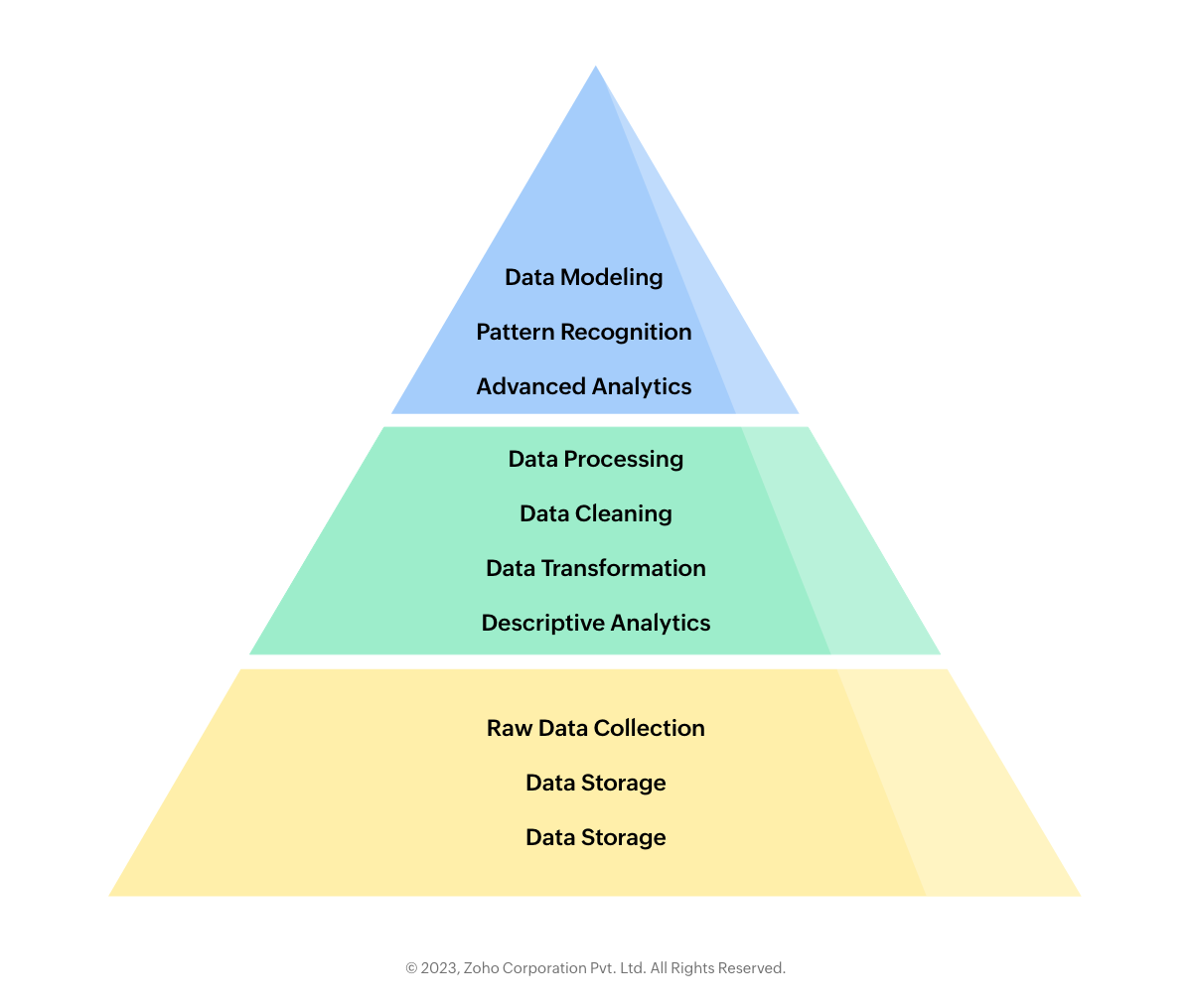
Business intelligence is essential in today's world for a variety of reasons. Because of BI's data visualization capabilities, insights are simple to understand and share—and most importantly it helps you with informed decision-making by turning business data into insights.
Business intelligence gives you an advantage by showing you what's happening in the market and what customers like, as well as aiding in strategic planning and tracking performance. Data mining plays an important role in business intelligence by extracting valuable insights from huge datasets. It also aids in identifying trends and patterns, enabling companies to make better decisions.
Forbes says, "Businesses use it to know what customers require and ways of serving them effectively". With the help of business intelligence, businesses meet customer needs by analyzing and understanding the sheer volume of customer data, which aids in customer segmentation based on various factors and facilitates targeting product offerings and personalized services. This allows businesses to understand customers better, which helps them in gaining customer satisfaction and a loyal customer base.
Now that we've discussed why business intelligence is crucial for companies, let's delve into real-world examples showcasing how it influences business operations and decision-making processes.
Some real-life business intelligence examples
Business intelligence tools in retail and sales
Let's take a supermarket as an example. To make use of business intelligence and get insights, we need to store data. A data warehouse can serve as a repository for all the information related to the supermarket. This can include details regarding customer information, inventory levels, or sales transactions.
Sales data analysis
Business intelligence is useful for analyzing your sales performance. By digging into all your data, BI tools can tell you which products are flying off the shelves and which ones could use a little boost. This helps you focus on what's driving your sales and even make improvements where needed.
Now, at the supermarket you've got a wide range of products, but it's important to make sure that your shelves are stocked with the right amount of each product.
Inventory management optimization
Business intelligence can help you optimize your inventory by figuring out how much of each item you need to have. To predict what customers will buy and to understand customer behavior, BI systems look at previous sales and market trends. This way, you avoid wasting money on items that won't sell and the store doesn't run out of items that customers want.
Customer segmentation for targeted marketing
Each customer is like a piece of a puzzle, with their unique likes and tastes. By segmenting your consumer base, BI tools can assist you in solving this puzzle. You can avoid mistakes like overstocking or missing out on sales chances with the help of BI tools. So, business intelligence is your go-to partner in running a successful supermarket, whether it's spotting the next big trend or better knowing your customers.
Business intelligence software in finance and accounting
You need to know how much money you'll be making and spending in order to keep your supermarket running smoothly. Business intelligence aids in getting insights from market trends and raw data, assisting you in making financial predictions by examining prior sales, customer behavior, and other factors. This lets you plan your budget with confidence, allocating resources where they'll have the most impact. Business intelligence also keeps track of how well you're actually doing as you go along, letting you know where you need to make modifications.
Marketing and customer relations
Your supermarket isn't just confined to physical stores; it's also available online through an ecommerce website and social media platforms. Business intelligence is essential in this situation. With BI, you can keep track of this dual presence easily.
Social media analytics and sentiment analysis
By examining the responses to your posts, comments, and reviews on social media, BI can evaluate the social media pages for your supermarket. It detects the sentiments behind these interactions, showing whether customers are happy, frustrated, or indifferent.
Customer churn prediction
BI can help analyze the shopping habits of customers by studying their purchase history and identifying patterns that might suggest a customer is considering shopping elsewhere. With this knowledge, you can proactively offer customers tailored discounts or incentives to keep them coming back.
Campaign performance tracking and optimization
Whenever your supermarket launches a new promotional campaign, BI steps in as your campaign strategist. It carefully tracks each promotion's effectiveness, showing which ones are generating the most attention and sales. This enables you to optimize your campaigns for the greatest impact.
BI tools are highly beneficial across businesses, providing huge amounts of insights by analyzing all your data. These insights are helpful for strategic planning and well-informed decision-making, which improves results.
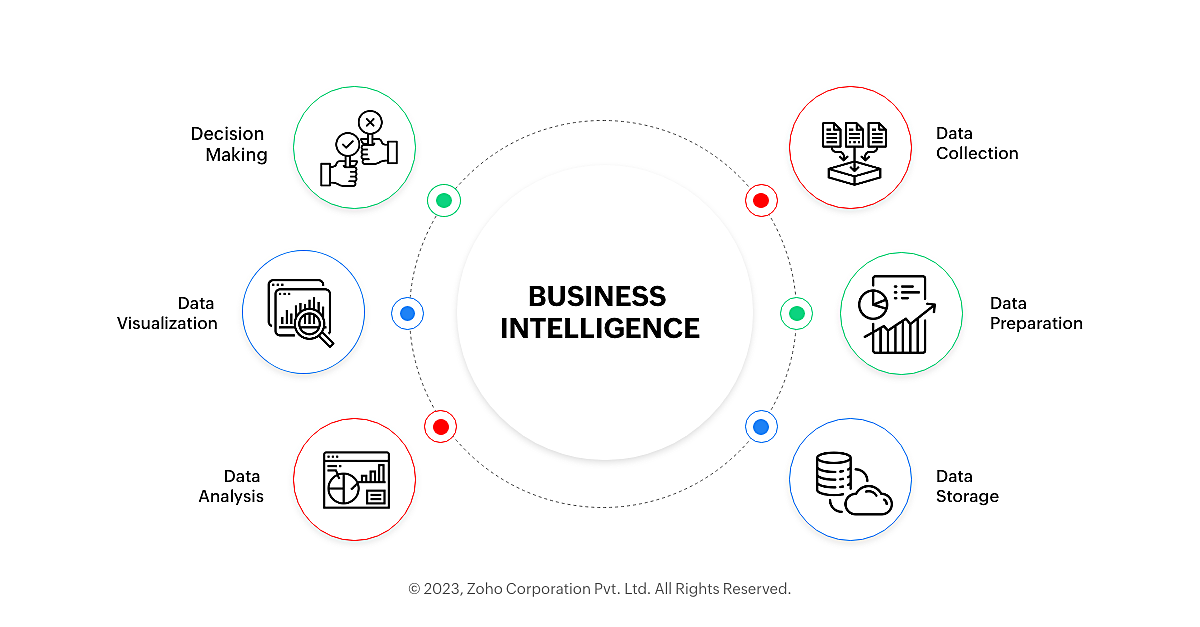
Ever wondered how big companies use data to win big? Let's take a peek into some BI success stories.
How did top companies use business intelligence to achieve success?
Here are a few examples of business intelligence in action at top companies.
Netflix
Netflix studies users' viewing habits, preferences, and interactions using business intelligence. This data helps with suggesting content that aligns with users' interests. Netflix uses BI to not only retain viewers' attention but also predict and create shows that resonate with those viewers.
Netflix's data-driven approach benefits both users and the company. Users get to watch shows and movies that are more relevant to their interests, while Netflix achieves higher engagement and loyalty.
Starbucks
Starbucks is well-known for the experience it offers in-person, and it tries to do the same online. Through customized emails and offers, Starbucks uses business intelligence to boost customer engagement. They collect user data from mobile apps and loyalty programs, on purchase history and behaviors. With this data, they provide personalized offers for their customer base, which makes the customers feel valued and keeps them coming back for more.
Spotify
Ever wondered why Spotify is so good at understanding your music taste and suggesting playlists for you? To offer a personalized experience to listeners, the streaming service analyzes their user listening habits, which helps in creating playlists like Discover Weekly and daily mixes that align perfectly with your vibe.
Amazon
The largest ecommerce website in the world uses business intelligence to analyze the shopping behaviors and purchasing patterns of their customers to understand their preferences. Using this data, Amazon suggests a variety of personalized product recommendations to users. These insights also help in inventory and supply chain management.
Uber
Would you believe that Uber collects a lot of data to help you get a smooth ride? It has a vast amount of data that's used for more than just matching you with the closest driver. In order to predict supply and demand and surge prices during the busiest periods, Uber uses business intelligence to analyze the raw data and get insights.
Having explored the crucial role of BI in organizations and seeing its practical efficiency in well-known use cases, leveraging business intelligence at your business is no longer a choice—it's a strategic move. The implementation of powerful platforms like Zoho Creator, which supports business intelligence, is key. Learn more about business intelligence here.
Zoho Creator is a low-code solution that can help your business gain a competitive advantage. You can also explore Zoho Analytics, our comprehensive data analytics and business intelligence platform, for your analytics needs.
In the market for business intelligence software? What are you waiting for?
 Varna C V
Varna C VVarna is a Product Marketer at Zoho. After her higher secondary education, she discovered Zoho Schools of Learning and chose to pursue her education in a non-conventional way. Outside work, she loves spending time with her friends. She sings all the time, sometimes on key.

